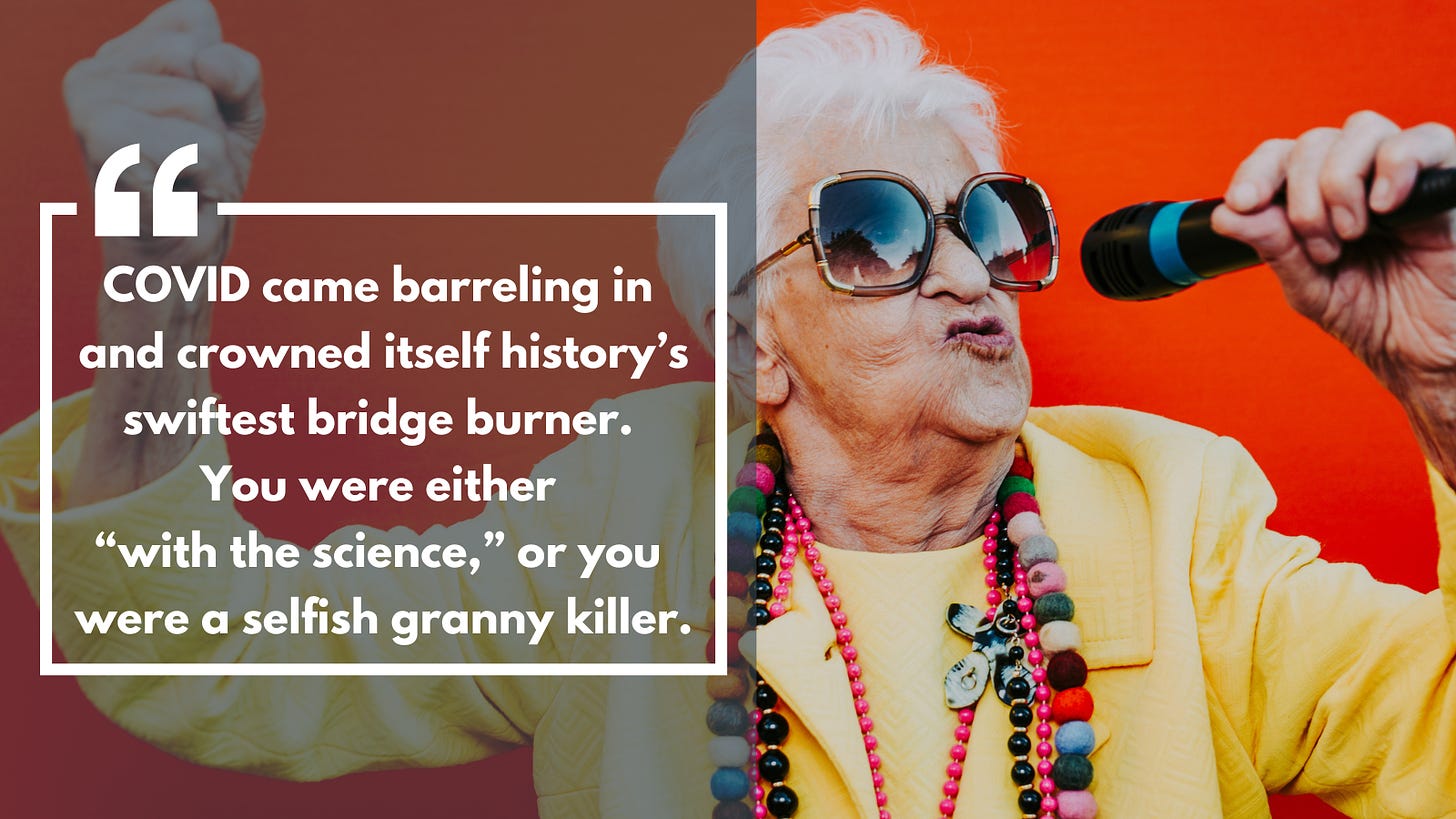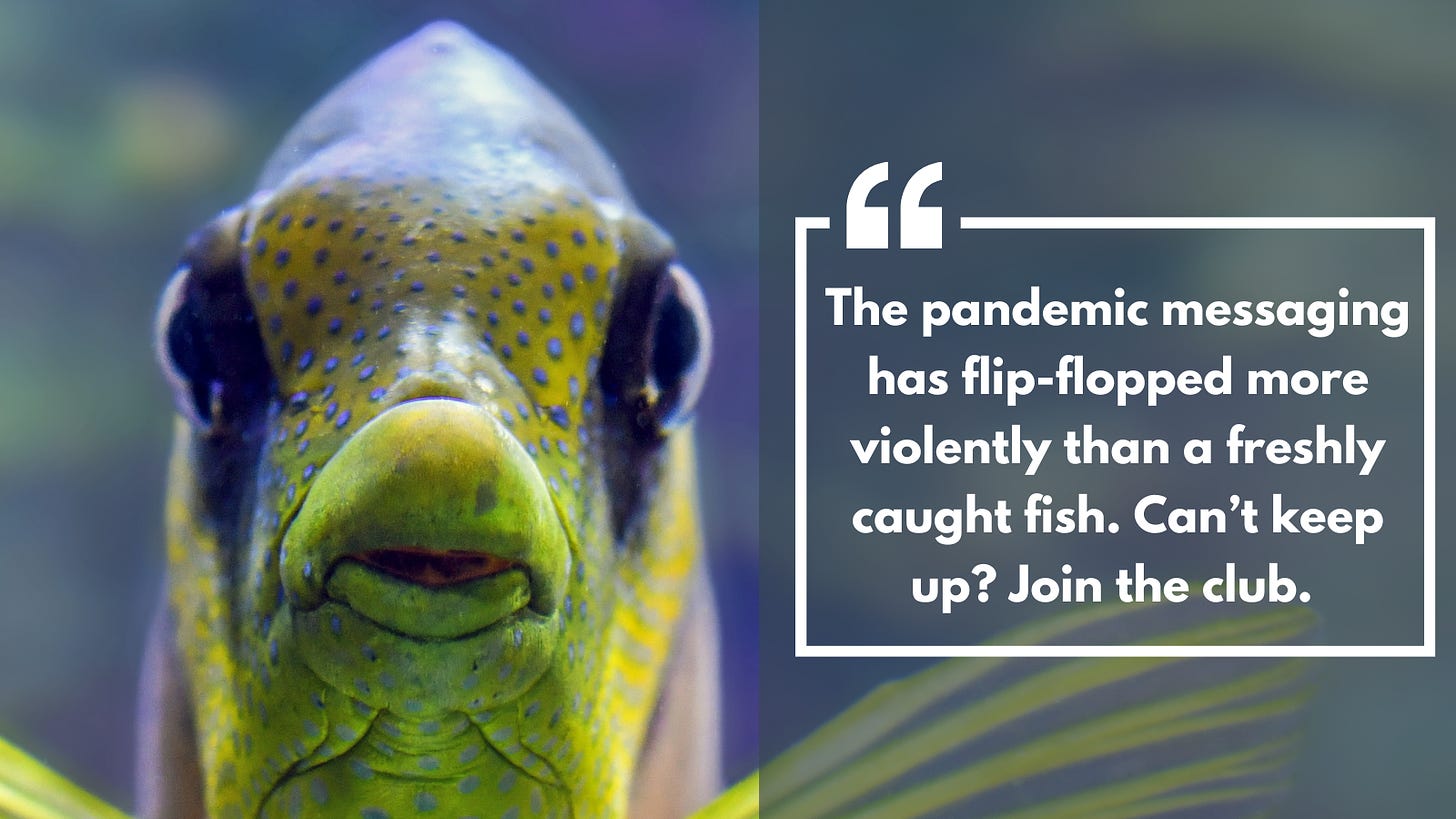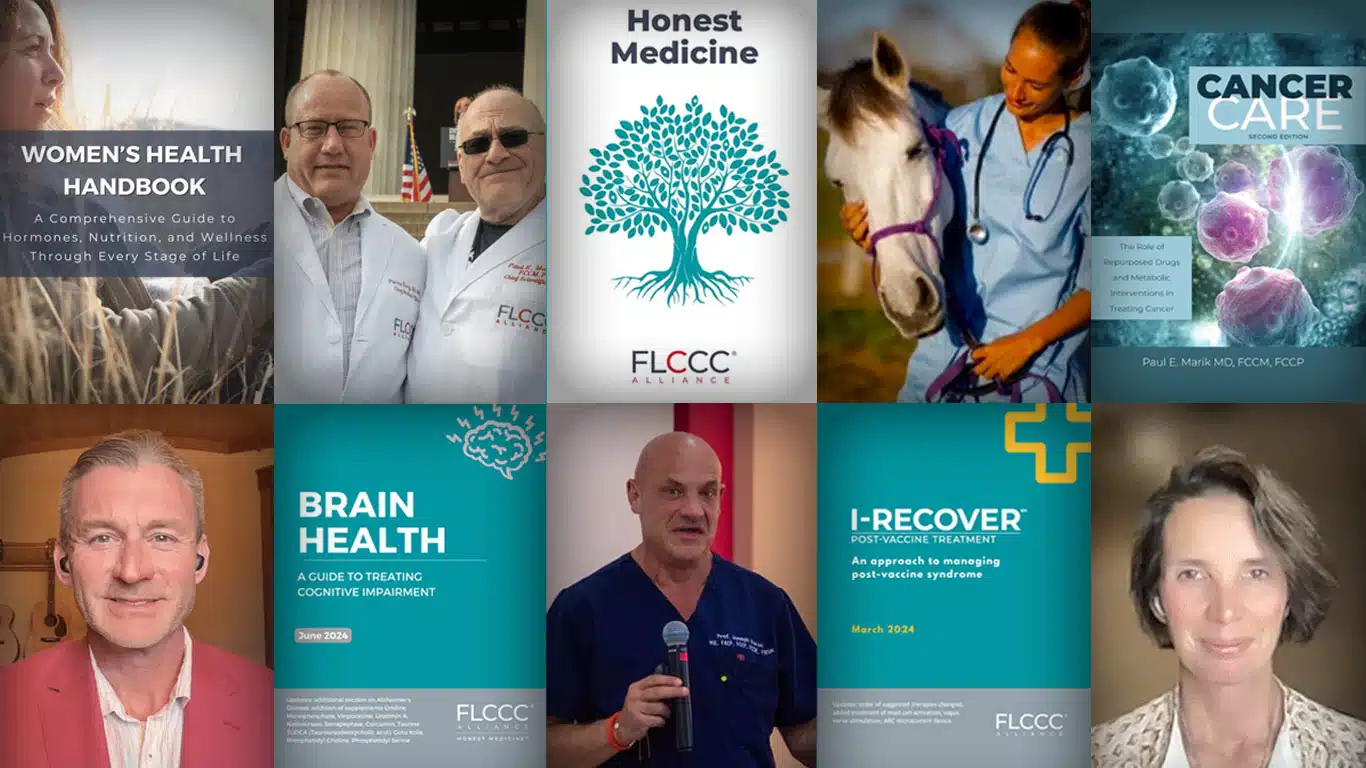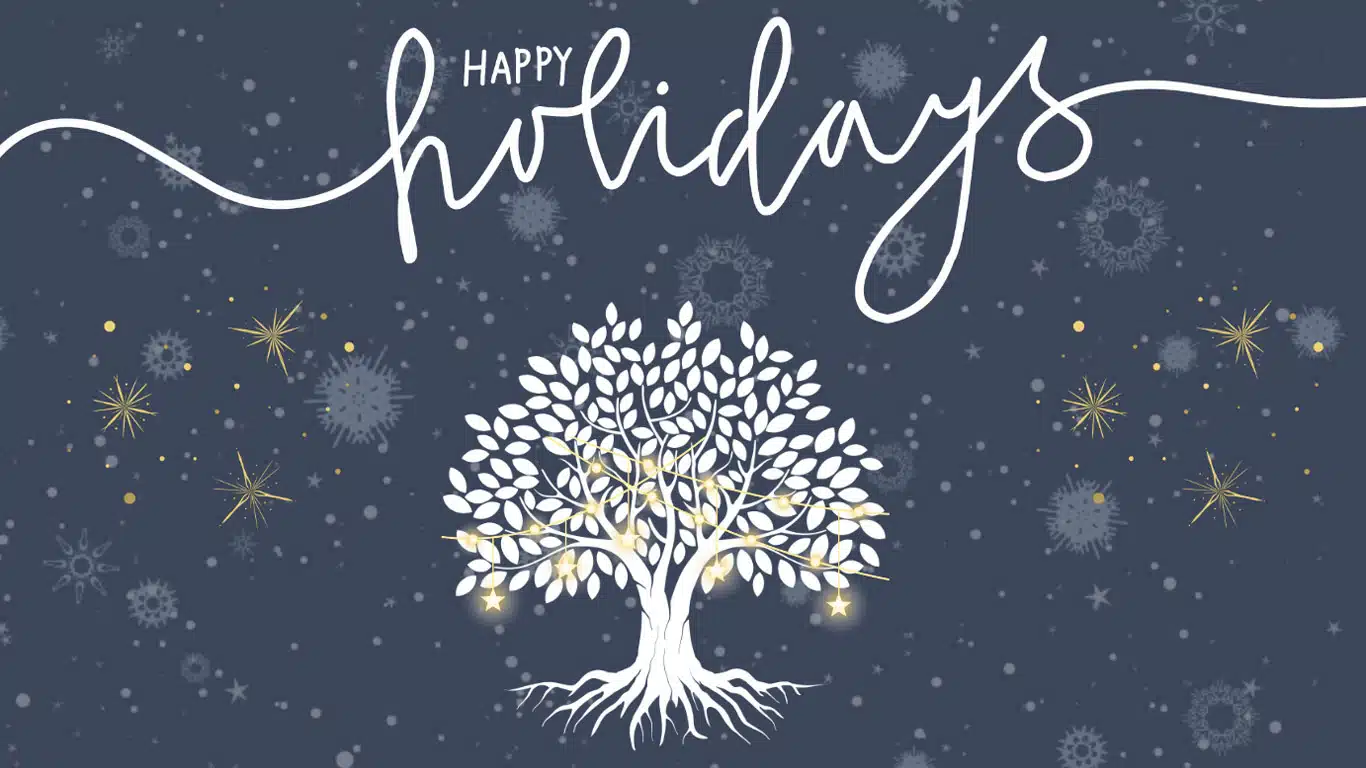It turns out, I can relate to people with opposing views on COVID in several critical ways.

Over lunch this week, a very wise friend (and brilliant relationship expert) dropped a life-changing conversational bomb.
“All relationships are defined by two things: bridges and boundaries,” Helena mused between bites of guacamole. “Bridges bring us together, and boundaries separate us. You can’t have a healthy relationship without both.”
Over the past going-on-three years, I’ve lost dozens of friends and alienated scores of followers, relatives, and fans of my writing because I spoke out against COVID vaccines. (And masks, and lockdowns, and mandates, and the corrupt corporate media, and the suppression of early, effective treatment, but I digress.)
I’ve heard through the reliable family grapevine that roughly half my DNA-sharing clan is convinced I’ve gone bonkers. To be clear, these are people with whom I have disagreed on countless controversial topics for half a century without issue. We’ve cheerfully discussed our differing beliefs on life after death and sat side by side on election night sipping prosecco and rooting for polar opposite outcomes. We’re teetotalers and drunks; Tea Partiers and left-of-Liberals. (Actually.) And yet never, not even once, did we let these disparities divide us. To each his—or her or their—own. Variety is the spice of life! You do you, boo.
And then COVID came barreling in and crowned itself history’s swiftest bridge burner. You were either “with the science,” or you were a selfish granny killer. You did what “they” told you to do without question, or you were a banjo-picking, MAGA-hat-wearing Trumper. There was no middle ground; no “healthy skeptic” category.

Had a bad reaction to a previous vaccine? Suck it up, buttercup. Your religion forbids it? Emergencies call for sacrifices; God will forgive you. Worried about the baby in your belly, the one you’re forsaking booze and bacon and your favorite hot yoga class to protect? Trust us, we aren’t just doctors; we are science itself.
A line was drawn in the sand, and everyone picked a side. We had no choice. In choosing to question the carefully curated messaging, I essentially marched over that line with a dripping gas can, turned around, and tossed a torch on the thing.
“Can you rebuild broken bridges?” I nudged Helena. “Asking for a friend.”
“Sure,” she replied. “If you can find common ground.”
It turns out, I can relate to the pro-poke side in several critical ways.
When COVID hit, we were all terrified. People were dropping dead in the street in China! Nobody knew who this bug would affect or in what way or for how long. A pandemic? Most of us had never lived through one of those! Who wouldn’t be scared? In those early, uncertain days, I dutifully wore my mask, sheltered mostly at home, and bleached my groceries (and my mail) before bringing them into the house. A like-minded friend admitted to once hosting a quarantine gathering—outdoors of course—and politely refusing a guest’s request to use her (indoor) restroom. “I made her pee in the bushes,” she laughs now. The virus was brand new and unknown; novel, if you will. It was wise to proceed with caution.
Neither group wants to get the dreaded C-word. Although decidedly mild for most, it’s true that some folks have a rough go of COVID (particularly the obese and those with compromised immunity or preexisting conditions, a collective camp the CDC acknowledges makes up nearly 95% of COVID hospitalizations). Even a mild case resulting in three or four days of missed work? I think we can all agree (one hilarious SNL skit notwithstanding), ain’t nobody got time for that. We all want to stay healthy! There’s no shame in that game.

We’re confused. “There’s no reason to wear masks.” “Only unvaccinated people should wear masks.” “Everyone should wear masks, regardless of vaccination status.” “You won’t get COVID if you’re vaccinated.” “You can still get COVID if you’re vaccinated, but you won’t pass it to anyone else.” “COVID vaccination does not stop transmission.” The pandemic messaging has flip-flopped more violently than a freshly caught fish. Can’t keep up? Join the club.
We wish the other side would see it our way. You know how when you go to lunch with a friend, and you really want a glass of wine, but she doesn’t order one, so you don’t either? There’s comfort in camaraderie. Similar stances validate our choices; opposing ones make us feel angsty. What if I’m wrong and COVID injures or kills me or someone I love? What if you’re wrong and the vaccine injures or kills you or someone you love? These uncomfortable considerations would go away if we were on the same side of the issue. It’s natural to seek homeostasis—and to be uncomfortable in its absence. I see you, fellow human, and I respect your resolve. (But I still wish you saw it my way. And yes, I know you feel the same.)
We trust science. There have been studies showing that the vaccine can be beneficial to some, and there have been studies (and now, an investigation) linking it to countless side effects, including death—at numbers unprecedented in vaccine history. Science, by its very nature, evolves. And because we live in a free country, we each get to choose which information and which sources of it seem to be the most reliable, trustworthy, and unbiased. Isn’t freedom glorious?
We both know lots of folks exactly like us who are just fine. You got the jab and didn’t even get a sore arm. I passed on it and somehow keep managing to survive season after season of “severe illness and death” without so much as a sniffle. If I’d lost a loved one to COVID, you’re sure I’d feel differently. If you lost a loved one to the shot, I’m sure you’d feel differently. The truth is, we’re both right. At least we’ve got that.
Tony Robbins said, “The way to go from discord to harmony is to go from concentrating on differences to concentrating on similarities.” We may never sport the same badge around our social media profile pictures, but that doesn’t mean we can’t still be friends.





